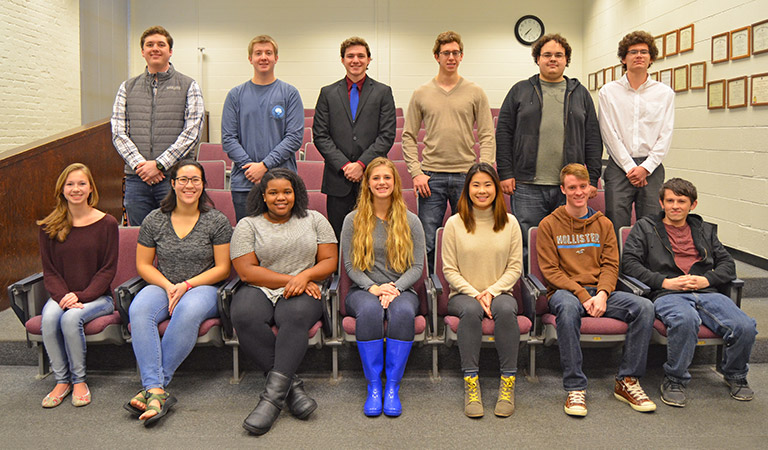Nuclear Engineering Students Receive Joint Nuclear Regulatory Commission and Pasqua Scholarships

The Department of Nuclear Engineering awarded 13 outstanding freshman students with a scholarship as part of funding from the Nuclear Regulatory Commission (NRC). In addition to the NRC scholarship, the department was able to supplement the scholarship with a Pasqua Scholarship.
“The department has very similar goals and values as the NRC and therefore was happy to leverage departmental funds to expand the impact of the NRC scholarship program,” said Wes Hines, Postelle Professor and head of the Department of Nuclear Engineering.
Hines sees this as an opportunity to provide financial assistance to ensure students can focus on academics first.
“Some students are forced to take low valued part time jobs during college,” Hines said. “These jobs do very little to prepare the students for the nuclear workforce and take valuable time away from the student’s studies. We try to target students that have severe financial need and that are at higher risk for not being academically successful so that they can be a positive addition to the workforce.”
Recipients of the NRC Scholarship and Pasqua Fellowship include Maya Bian, Alec Cacheris, David Clark, Valerie Gray, Mullin Green, Matthew Hipkins, Erica Irwin, Isaiah Linkous, Shane Pearson, Annette Robbins, Jakob Thaler, Alex Wadovick, and Kayln Wright.
“The University of Tennessee leveraged their Nuclear Regulatory Commission scholarships last summer to bring in some of the brightest undergraduate students from across the country,” Hines said. “Over half of the diverse group of recipients were from outside Tennessee.”
The NRC scholarship fund allows for these students to pursue an education in science, engineering, or another field of study that the Commission deems critical to its regulatory mission with a goal to add to the nuclear. As part of developing the nuclear workforce, students will be required to work six months of nuclear-related employment for each year of academic support from the NRC scholarship.
“The employment may be with NRC, other Federal agencies, State agencies, Department of Energy laboratories, nuclear-related industry, or academia in the recipients’ sponsored fields of study,” Hines commented.
This is the fourth time the department has received an award from the NRC since 2011 and have now been able to offer scholarships to 135 students.